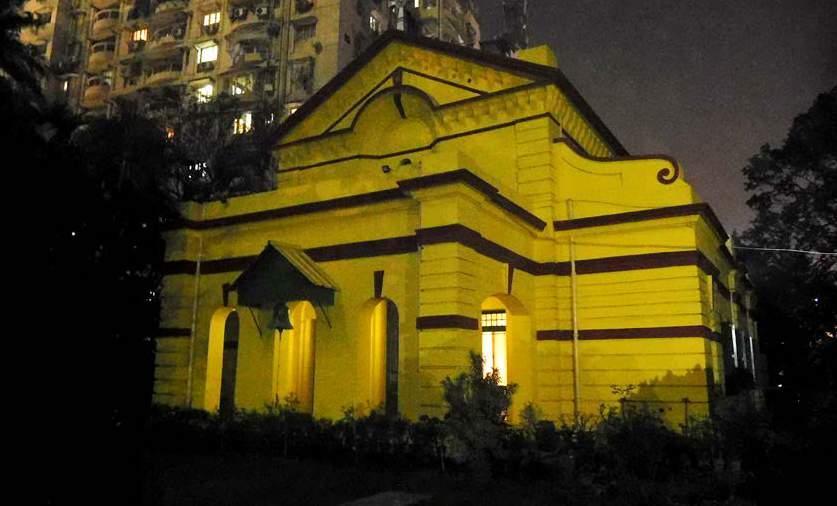
2 minute read
Two Hundred Years of Bishop’s College, Kolkata
by USPG
ISSUE 1 2020
The St Thomas chapel of Bishop’s College, in Kolkata Credit: Grentidez /Wiki Commons
the India in which they will minister is a very different country. Hence there is the need to ‘widen our horizons' The Right Rev'd Michael Westall reflects
Bishop’s College, Kolkata, celebrated its bicentenary from February 18 to 20 this year. The College was founded in 1820 by Thomas Middleton, the first Anglican Bishop of Calcutta (as the city was named then), who had been appointed in 1814. For the first 150 years of its life it was the central theological college for what eventually became the Church of India, Pakistan, Burma and Ceylon. For the last fifty years it has performed the same function for the united Church of North India.
From the UK I went for the occasion with my wife Punitha. The Rev'd Margaret MacGregor, a Church of Scotland missionary, who was on the staff from the 1970s to the 1990s, also attended. Many former students, including former Moderators of the Church of North India, the Church of South India and the Church of Bangladesh were also present. Other former students travelled from Madurai in Tamil Nadu, Mumbai, Lucknow, Delhi and Shillong for the occasion. Naturally many from Kolkata were there.
The theme for the celebration was “Reclaiming our Heritage, Widening our Horizons”. On the first afternoon Bishop Prakash Patole of Mumbai gave a paper on this, with a response by Bishop G. Dyvasirvadam, a former Moderator of the Church of South India. (I found myself chairing this session, having stepped off a plane only that morning!) Both the paper and the response highlighted great pride in and affection for what the College had been thirty or forty years before, when they were students. And this affection for the College and the role it had played in the formation of the priesthood was emphasised in many private conversations.
But there was equal consciousness that the College now exists in a very different situation. The students are drawn from a wide variety of churches. Naturally they are no longer only male, as they were forty years ago. And the India in which they will minister is a very different country. Hence there is the need to ‘widen our horizons’.
The following day the Principal, the Rev'd Dr Sunil Caleb, spoke on the present state of and future vision for the College. Central here is a very ambitious building programme. After the sale of various parts of the property over the years, most recently in the 1970s, the present campus is small. The College needs many new facilities.
In the plan which has been formulated, the older “heritage” buildings - the barracks (student rooms), the chapel and the library building - will be preserved, and as well as staff flats built in the 1980s. But there will be three new buildings, which will include a new library, new archive room, rooms for women students, a new dining hall and more staff flats. The biggest of the three will be a sixteen-storey building, of which eleven will belong to the developer. This provides the funding for the whole project.










